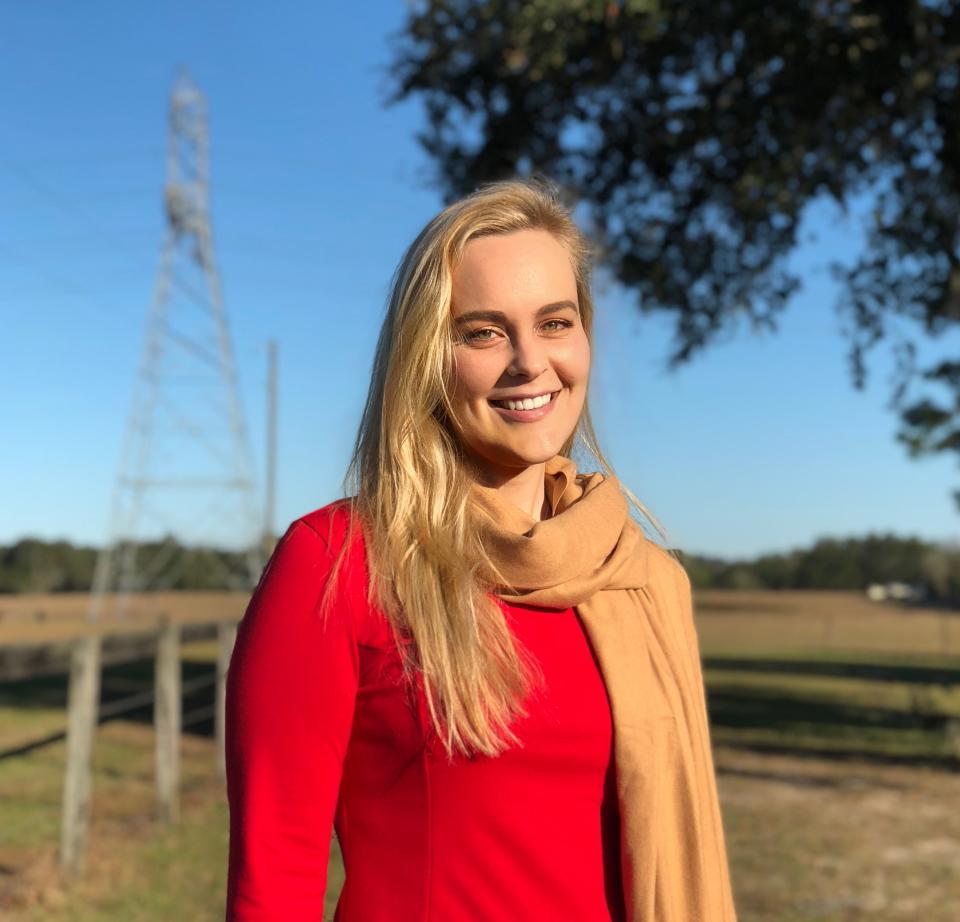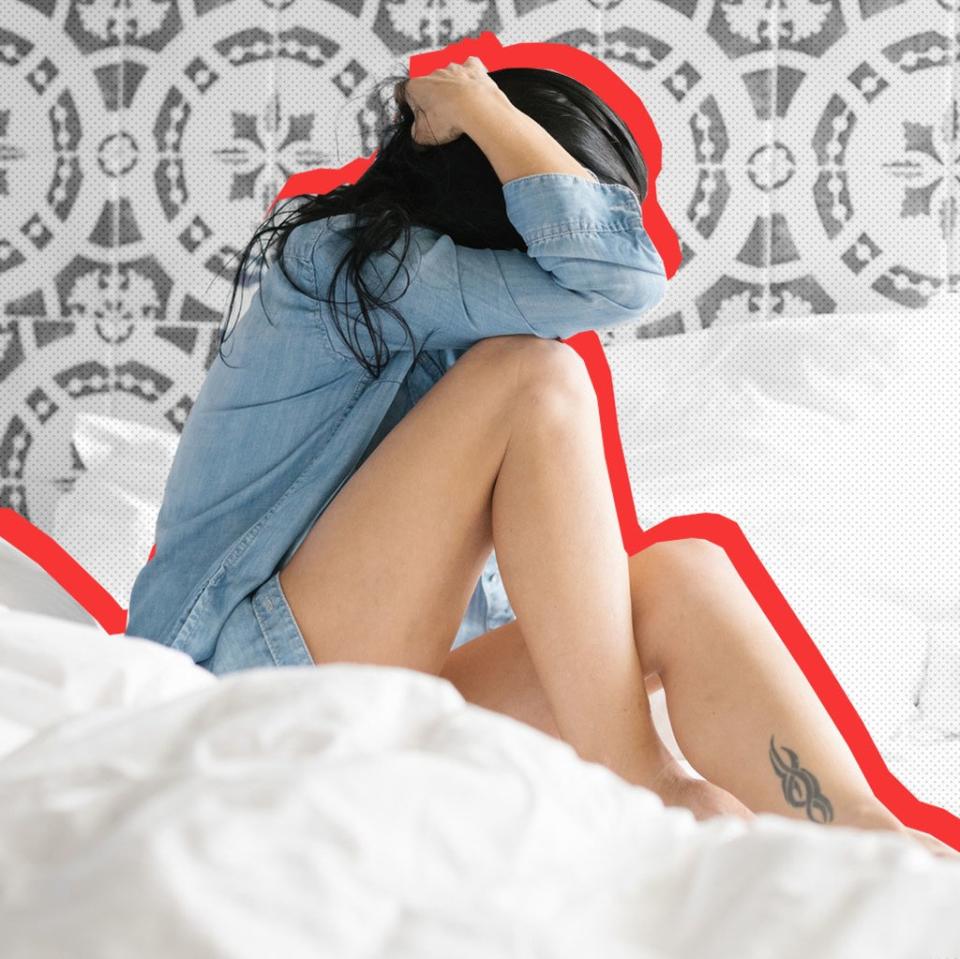I'm 27 and Living With Narcolepsy—and It's Not a Joke
I was diagnosed with narcolepsy in 2017 after 10 years of exhaustion and stress-induced paralysis. Fearing I couldn’t afford the necessary tests, and unsure about what was even going on, I opted to just tough it out through my teens and early twenties. Until finally, with a solid insurance plan, I went to get checked out last year.
The doctor was brusque and dismissive, and left me waiting for hours. This felt like a slight after I was finally seeking the treatment I knew I desperately needed. And then came another one when I opened up to my two closest friends about my diagnosis. We talk about everything in our group chat: books we’re reading, futile attempts at getting together, dating advice, memes. But not, I would soon learn, important health updates.
After I shared my diagnosis, one friend wrote, “I thought you were having trouble falling asleep?” I was. Insomnia is a symptom of narcolepsy. Restless sleep is another one, and I sometimes wake up feeling like I’ve just run a marathon.
The other friend, a doctor herself, responded with a long, accusatory message reminding me that sometimes it’s difficult to get to patients on time, and insinuating that I was the problem in my less-than-satisfactory checkup. Oh, OK. Thanks.
As quickly as I got the diagnosis I had been waiting for, I learned that—like many chronic illnesses—narcolepsy carries a social stigma. My friends were not immune. Popular media, when it portrays narcolepsy at all, shows it as something comical, with the ailing character passing out mid-activity (think: the Narcoleptic Argentinian in Moulin Rouge). This is called cataplexy, or falling asleep after an attack that renders you slack-jawed and weak, and it doesn’t happen to all sufferers. It doesn’t happen to me.
My symptoms mostly involve a potent exhaustion that feels like I stayed up all night, and only caffeine and willpower are keeping me standing.

I expend a great deal of my energy every day trying not to look sick. I dress well, stand up straight, and never leave my apartment without a full face of makeup. I'm a pro with concealer on dark circles. But the truth is, waking up in the morning is excruciating. I can’t do much before I take my medication, which kicks in with a feeling like my power switch has been flipped on. If I’m not ultra-careful about my diet, my mind is foggy most of the day, and by 3 in the afternoon, I feel like I could fall asleep at my desk—which I mean literally. For most of my life, I thought this was what everyone else called “the afternoon slump.” Except it doesn’t go away after I take a nap. Plus, most people don’t start slurring their words when it happens to them.
This isn’t a walk in the park, but it’s what my online support group calls “sleep attacks” that do me in. Similar to cataplexy, these attacks are triggered by a moment of intense emotion. For me, it’s stress. I can feel an attack coming on in my arms first. They feel light and tingly, but they also become so heavy I can’t lift them up. I have to sit down right away. If it gets worse, I can’t think, speak, or stand. I don’t necessarily fall asleep, but it’s better if I lay down; I usually pass out.
Even in these circumstances, I try to set several alarms on my phone to bring me back. If left uninterrupted, I can sleep for 12 hours or more. I may feel better when I wake up, but sometimes, the alarms feel like whiplash, and a hazy weakness will keep me confined to my apartment for days.
Because of these attacks, I had to quit my job teaching high school English; daily interactions with students and administrators pushed me to the brink many times. I have had to cut back on online dating, too. Last time I joined Bumble, I matched with more than 60 guys, and the countdowns—you only have 24 hours to message a match or you miss out—caused a panic that left me practically unable to function. I had to delete the app. See, narcolepsy messes with my dating life even before I can get a date.
The last time I had an attack, I was supposed to get on the phone to help two of my friends sort out a disagreement. But the stressors of that day piled up, and I couldn’t. I apologized and told them about my condition. One texted right away, with a thoughtful and concerned message. The other took longer to respond, finally sending a hurtful missive that sounded like she thought I was just making excuses.
I’ve learned this is a typical response when someone doesn’t understand narcolepsy—which many don’t. It's why I joined a private Facebook group for people with narcolepsy, and I cling to the community I've found there.
Many of my peers in this group are like me. “N,” as it’s shortened in posts, rules their lives in secret, and they’re afraid to open up to even their closest friends. For many of us, the Facebook group is the only place where we can be honest about what we’re going through without any repercussions. No one will diminish the illness. No one will offer ridiculous “cures.” No one will judge. In there, we are never called “lazy.”
When I’m feeling so tired that I can’t go on, I know I can scroll through my newsfeed and find memes of sleepy cats, rants about significant others who don’t understand, and answers to questions I was too afraid to ask. I can find understanding. Narcolepsy is an isolating disease. I don’t have the energy to socialize most weeks, which means I see no one but my coworkers for long stretches of time (I now work at a small magazine). Without the support group, I would be completely alone.
On a recent weekend trip to visit a friend, I told her the truth after a few drinks.
“That’s why you’re so chill all the time,” she said with a smile, and then never mentioned it again. But there was an almost imperceptible shift between us. I was more comfortable hanging out with her, because I had shared a big part of myself that I had previously been preoccupied with keeping secret. I wouldn’t have done that without the support group. It's there that I learned how stress makes my symptoms flare, which medications to try, and that a low-carb diet can help. I saw that I wasn’t the only person whose life was harder because of narcolepsy. I saw that my symptoms were real.
Most importantly, I've learned that it's OK to be myself, that sometimes it'll be hard, and anyone who deserves a place in my life will come ready to roll with that. I’m still not back on Bumble, though.


